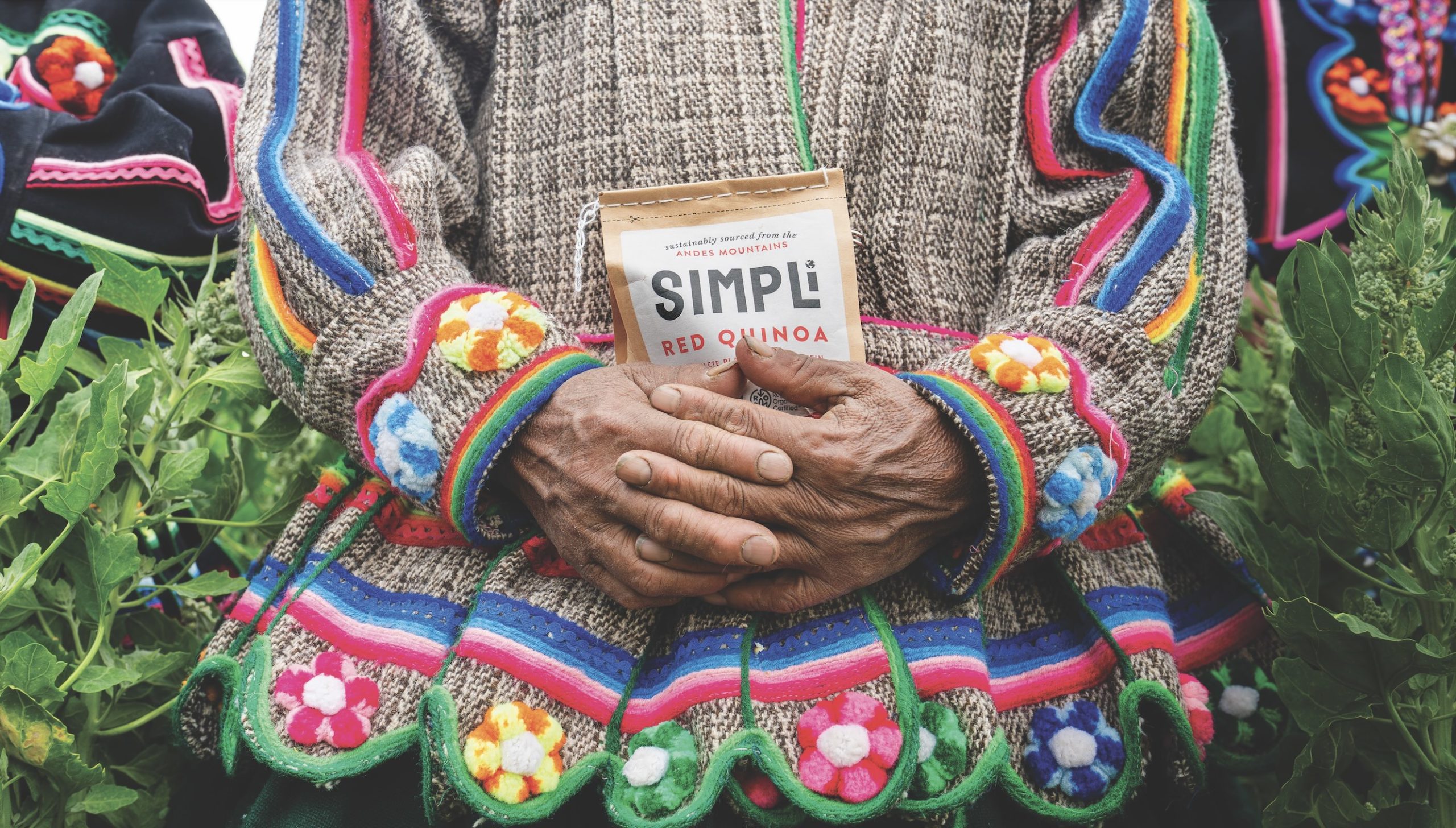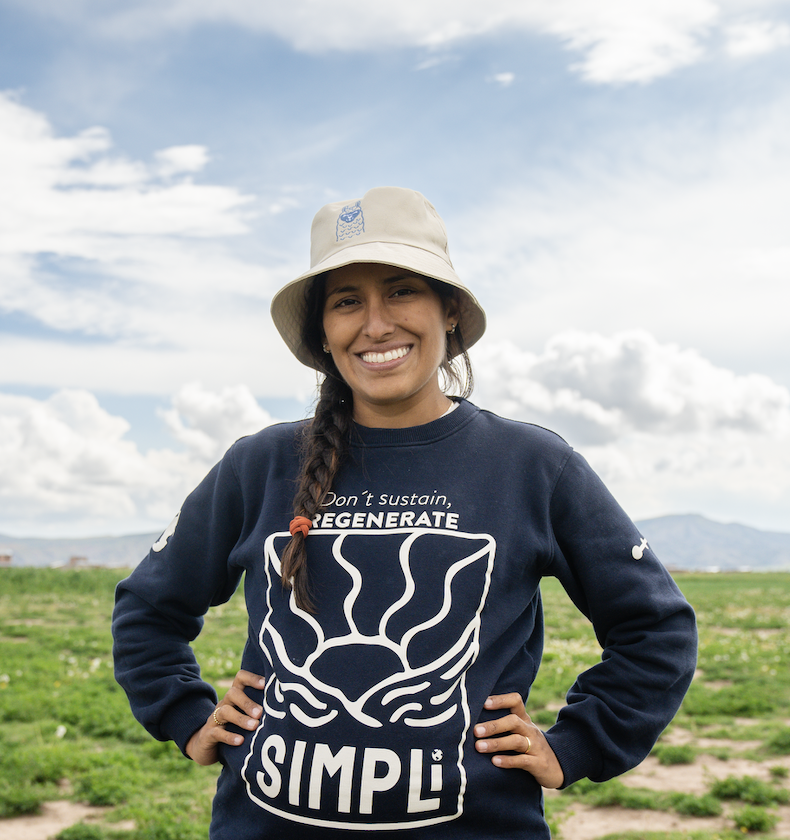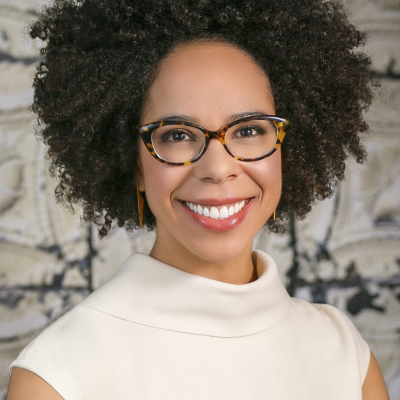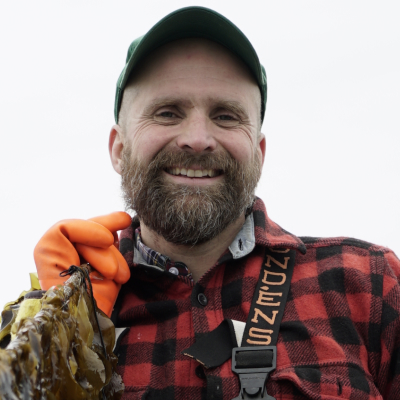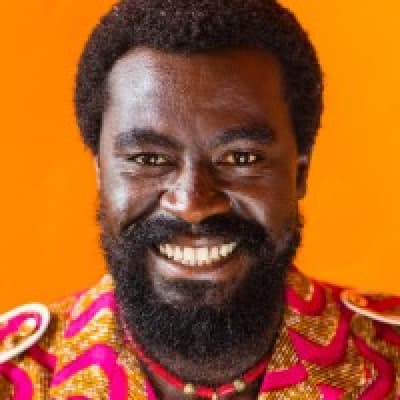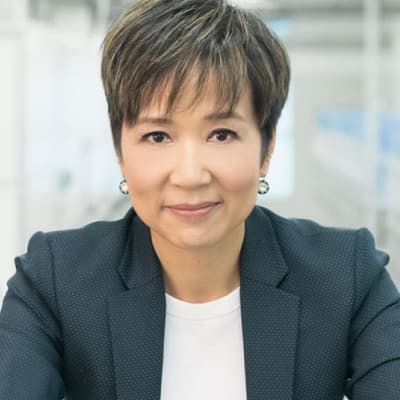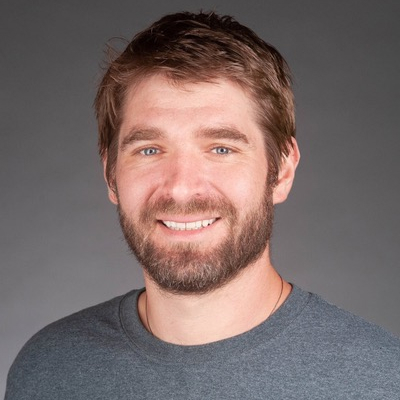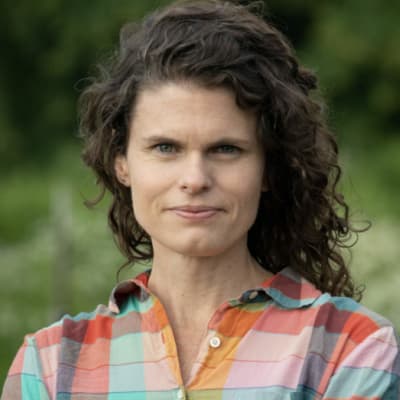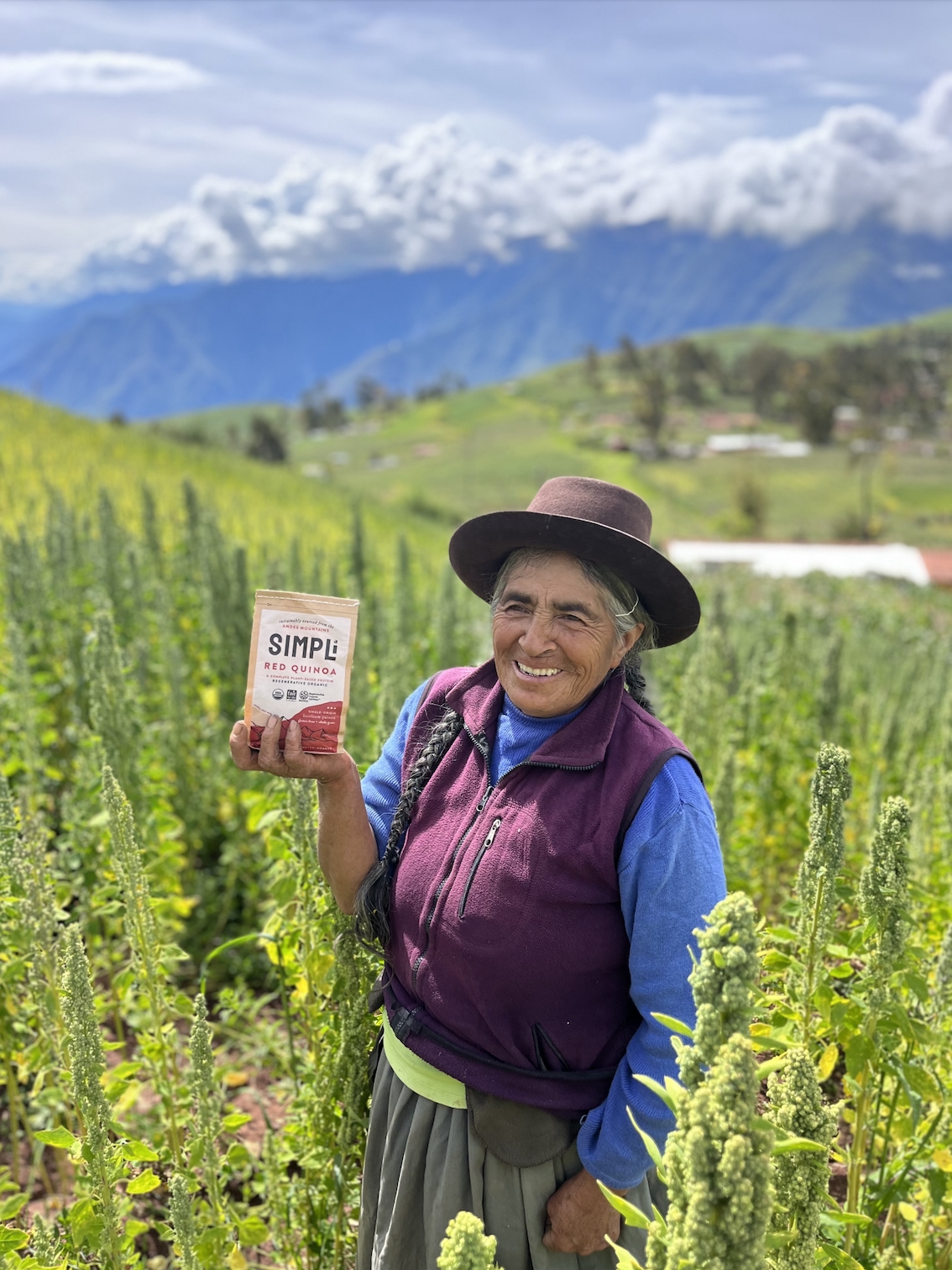
“Growing up in Lima, Peru on my family’s organic chicken farm, I always felt a strong connection to the land and our duty to protect and preserve it. We worked closely with farming communities in the Amazon and I was raised to respect the sacred trust between farmer and land,” says Sarela Herrada. Years later, after garnering experience in food management and the supply chain, Sarela co-founded SIMPLi with her husband Matt Cohen. Their first product, launched in 2020, was quinoa sourced from Indigenous farmers in Puno, Peru. Since then, they’ve expanded to other locations in South America as well as Europe, offering grains, beans, oils, salt blends and more—all produced following Regenerative Organic Certification standards. SIMPLi’s model cuts out the middle man so that they can work directly with farmers and ensure that they are paid fairly. Exploitation is still a common occurrence around the world in many industries. Consumers with accessibility and the benefit of choosing what they buy hold a lot of power as each dollar spent can help or hurt communities.
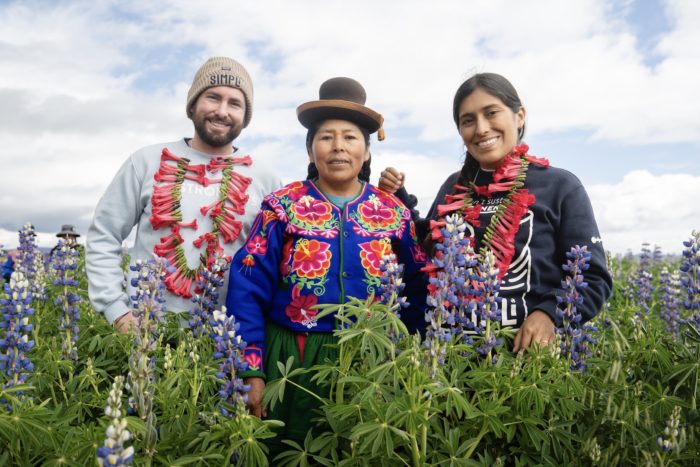
What led you to founding SIMPLi?
Growing up in Lima, Peru on my family’s organic chicken farm, I always felt a strong connection to the land and our duty to protect and preserve it. We worked closely with farming communities in the Amazon and I was raised to respect the sacred trust between farmer and land.
After graduating from Penn State University with a degree in industrial engineering, I began working in supply chain and food management. I set out with the ethos to create a fairer and more just food system rooted in support for indigenous farming communities. I realized that if I wanted high-quality, delicious food that didn’t exploit farmers or hurt the planet, I’d have to build it myself. So, alongside my husband, I founded SIMPLi in January 2020 with a mission to pioneer new approaches to simplifying complicated supply chains and a vision to transform our flawed food system into one that is good for people, producers, and the planet. We launched with quinoa that we directly sourced from Indigenous farmers in Puno, Peru who were not reaping the economic rewards of increasing Western demand for this product.
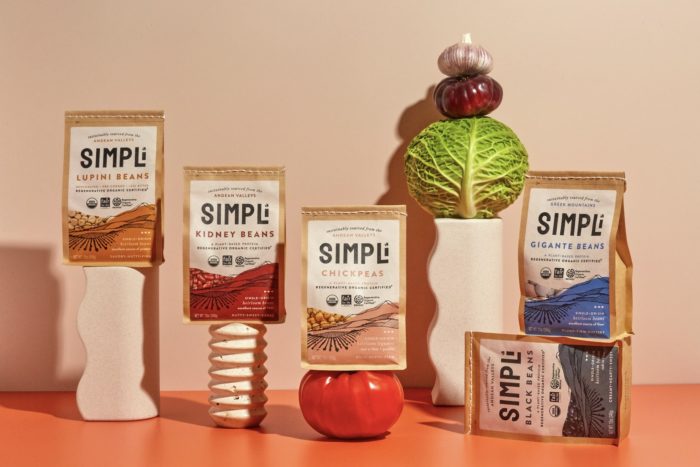
Do you have a set criteria for choosing farmers to work with?
Our sourcing ethos is rooted in bringing the highest quality ingredients to consumers without compromising on taste or nutrient density while having a positive impact on the planet. That’s why we are built on the foundation of regenerative organic sourcing. We are deeply invested in the fast-growing Regenerative Organic Certification (ROC), which goes beyond current certification criteria for organic and meets the highest standards in the world for the following three pillars: soil health, animal welfare, and farmworker and social fairness. We ensure the farmers we work with are committed to achieving ROC. We also seek out producers who are growing products of integrity at their origin—quinoa in the Andes; Gigante beans in Kastoria, Greece; and Kalamata olives in Kalamata, Greece.
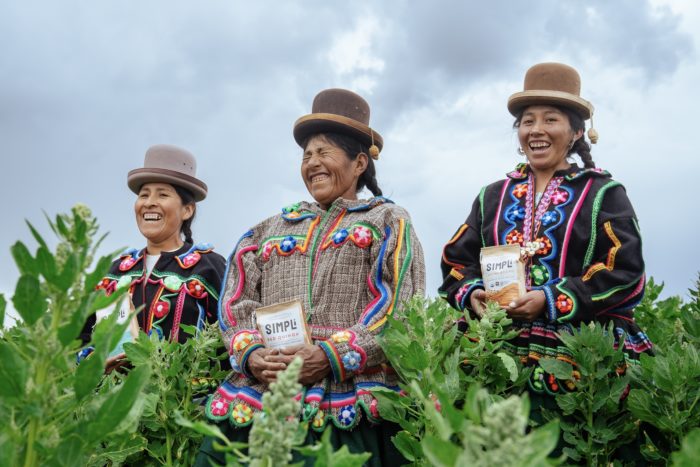
How is SIMPLi helping fight the exploitative measures that many farmers face?
By cutting the middle man, SIMPLi partners directly with farmers to source the finest ingredients, and we create an infrastructure that allows them to flourish while supporting the pivotal regenerative organic farming practices that our brand is built on. We eliminate many traditional supply chain stops (from local broker/coop to exporter, importer, distributor and more), thereby reducing long-chain markup. When fewer hands touch the product from farmer to consumer, it allows us to shift profits that would typically benefit the middlemen back to the farmer.
Our supply chains are vertically integrated, which provides us with visibility, accountability, and facilitation of regenerative practices with our farmers—we provide direct knowledge and support to our farming communities who are transitioning to regenerative organic certified practices. That’s why we created the Regenerative Pathway Program (RPP), which supports farmers with resources to achieve Regenerative Organic Certification® (ROC) and empowers them with education, financing, and community-building.
By fostering partnerships with indigenous farming communities globally, SIMPLi fosters a mutually beneficial relationship, honoring traditional wisdom while integrating modern innovations. The program extends beyond the scope of certifications; it’s a catalyst for positive social change. By investing in communities, our approach creates a domino effect that fuels long-term economic stability and uplifts communities worldwide.
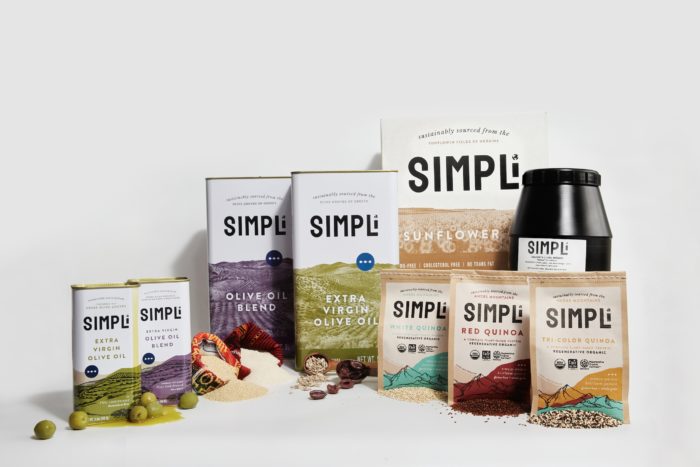
Why did you decide to begin sourcing from Europe?
Our expansion into sourcing from Europe was less about the location, and more about the product. As we thought about expanding our product line and the pantry staples we wanted to offer, Extra Virgin Olive Oil (EVOO) was a natural next step for us. Olive oil is a tried and true pantry staple—in 2023, the U.S. consumed 375,000 tons of olive oil, making it the world’s second-largest consumer of olive oil.
As we looked for accessible ways to bring the best ingredients from around the world to consumers in the U.S., we saw our incredible Greek olive oil as a perfect fit. When we set out to create the product, we followed the same path we took with quinoa, going straight to the native source. We work with growers in the beautiful countryside of Sparta, Greece who handpick and harvest Koroneiki olives, the most prized olive variety for oil, from more than 25,000 trees in centuries-old groves once per year for our EVOO.
It’s a loud secret that the olive oil market is riddled with fraud. We saw an opportunity to bring a transparently sourced, delicious product to the market while shedding light on the issues plaguing the industry. Our fully vertical supply chain helps eliminate fraud by working directly with growers in the region to ensure the integrity of our oil and include the sourcing information directly on our EVOO tins.
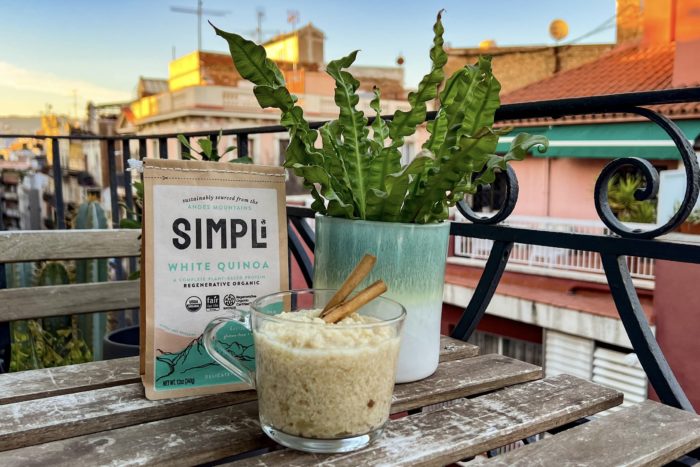
Do you have any favorite recipes to make with SIMPLi ingredients?
My mom’s quinoa porridge with SIMPLi’s white quinoa. It’s the perfect warm breakfast to get your morning started right with some protein. You can try the recipe yourself here!
What does your role entail being on the board of the Regenerative Organic Alliance?
I feel so honored to be a part of an incredible and talented board that’s shaping the gold standard of agriculture in the food industry. As a board member and chair of the governance committee, I oversee recruiting and vetting of potential board members, as well as maintaining governance policies.
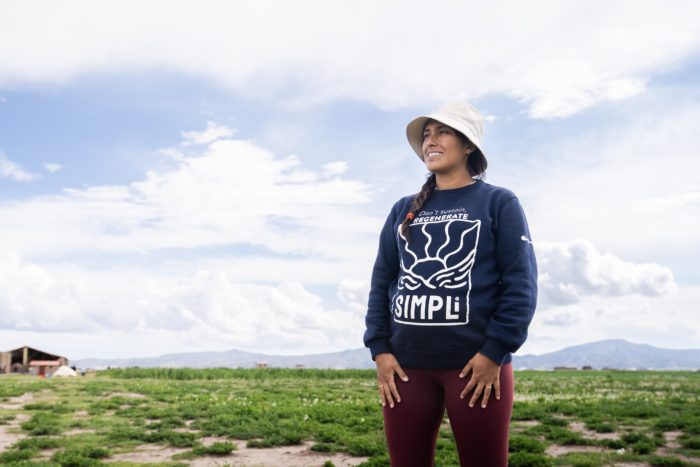
What keeps you hopeful for the future of food?
Our food system is a large contributor to the climate crisis as it stands today, but it holds the potential to be a leading solution improving people’s health, the soil’s health, our waterways and even our air.
My greatest hope is that my work leaves the planet better than I found it for future generations to enjoy. I’m a mom with two young kids—my son was even born on Earth Day this year—and I want them to enjoy the same natural wonders around the world that my co-founder and husband, Matt and I have had the privilege to enjoy.

